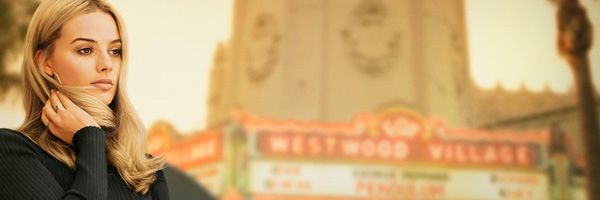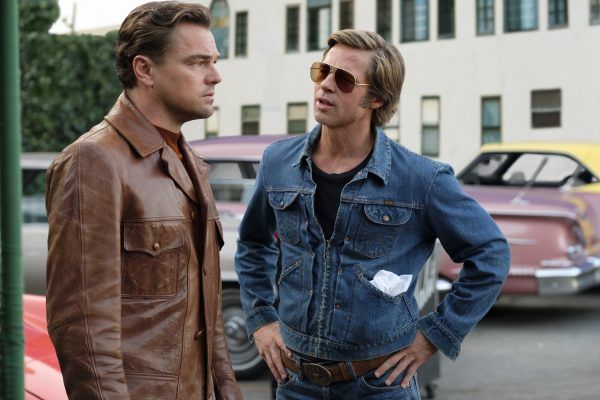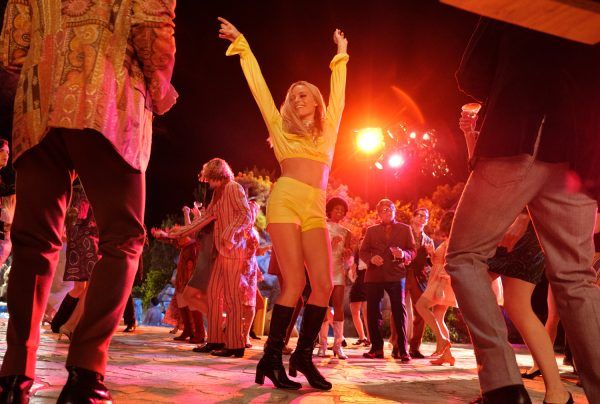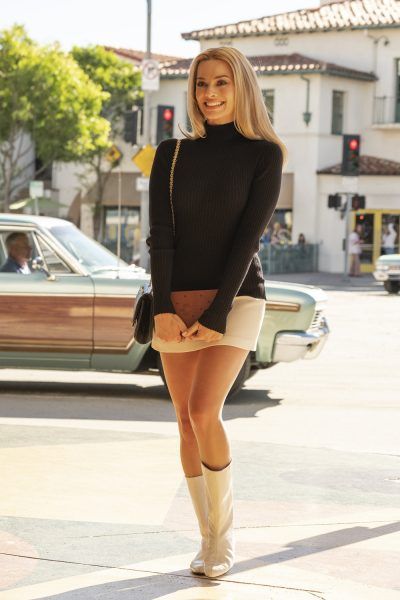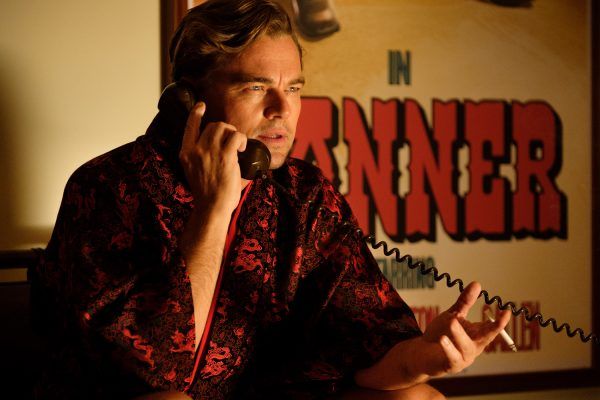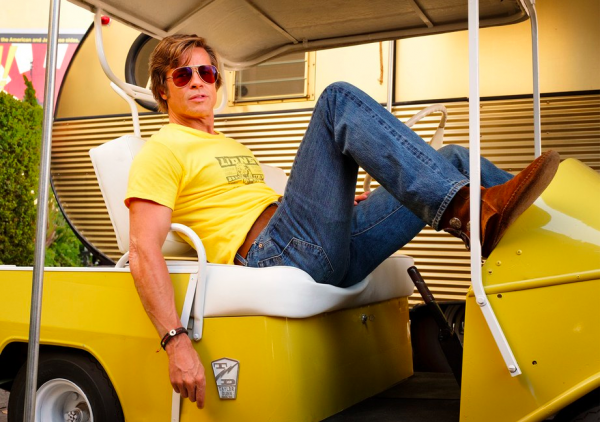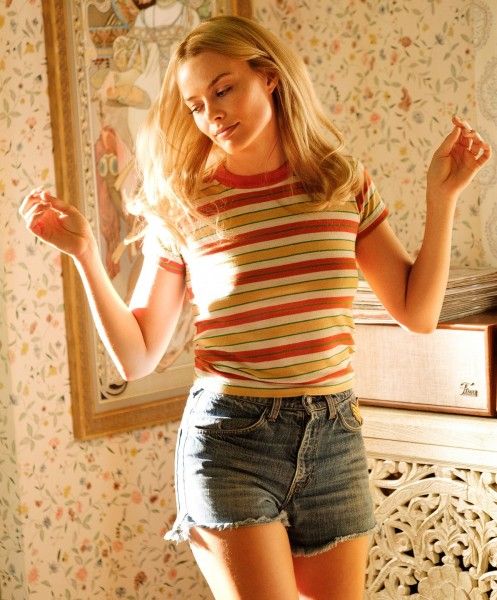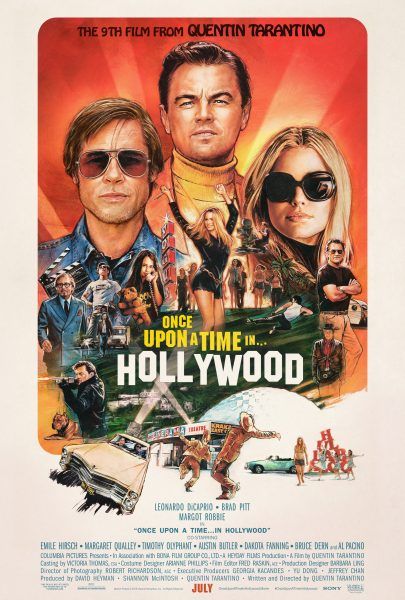*Major spoilers ahead for Once Upon a Time in Hollywood*
Well, it was right there in the title, Once Upon a Time in Hollywood, writer/director Quentin Tarantino's way of telling us his ninth film would be a fairy tale. Hollywood is basically a fantasy land all on its own, a sprawling kingdom of hills, valleys, and magic worthy of one of those maps that come at the start of a Tolkien book. But Tarantino ups the whimsy through a lense of sheer wistful nostalgia. His 1969 Hollywood is one just left of reality, lit by the same neon lights but ones that illuminate a time that never quite was. One where Rick Dalton (Leonardo DiCaprio) and Cliff Booth (Brad Pitt) zip down freeways where traffic doesn't exist, where entire Western scenes could be shot in real-time without set-ups or cuts and a washed-up stunt-man would have any chance of hanging with a young Bruce Lee (Mike Moh) in a fight because it makes for a funny flashback. It's all a shockingly sweet inaccuracy, and at its center is the closest Tarantino has ever come to putting an actual fairy into his story: Margot Robbie as Sharon Tate, the ethereal real-life rising star whose life was cut too short by members of Charles Manson's homicidal cult on August 8, 1969.
But of course, tragedy has no place in a fairy tale. Like he did with Inglourious Basterds, Tarantino opts to alter history. En route to the home Tate shared with director Roman Polanski, the three members of the Manson Family—played here Austin Butler, Mikey Madison, and Madisen Beaty—run into a margarita-drunk Rick and decide he's a more appropriate target. Instead, they find Cliff high on an acid-laced joint, who proceeds to beat the absolute shit out of all three cult members in the fireworks finale burst of trademark Tarantino violence that's been simmering for two-and-a-half-hours. One member is horrifically mauled by Cliff's trusty pitbull and eventually curb-stomped into mush. Another has her face viciously smashed into...everything. And the third, who screams and screams throughout the mayhem, crashes through the back door and into Rick's pool, where the over-the-hill Western star promptly burns her to a crisp with the flamethrower he keeps in the shed, as one does.
Evil soundly vanquished and our heroes safe as can be, a very-much-still-alive Sharon Tate invites Rick up to her house for a drink. The doors to a castle that Rick could only fantasize about literally swing open, and we end on him ascending to another level of Hollywood. And they all, as they say, live happily ever after.
I don't think it bears repeating, but you never know: This is not what happened. Three members of Manson's cult crept up to 10050 Cielo Drive and brutally murdered Tate along with Jay Sebring, Wojciech Frykowski, and Abigail Folger. (A fourth member kept watch outside; Tarantino has a fourth member, played by Maya Hawke, get cold feet and drive away.) It was a gruesome crime that went unsolved for months, despite a similar slaying taking place the very next night at the LaBianca family house. It shook Hollywood, it shook the world, and effectively ended the peace-and-love era of the 1960s.
For Tarantino to change the timeline isn't exactly shocking; he's done it before, and just introducing the real-life figures of Sharon Tate and Charles Manson opened up the possibility from the first minute. But it's the end of a film that's surprising as a whole. Once Upon a Time in Hollywood doesn't feel like a Quentin Tarantino movie for most of its runtime. Lord knows the director has always been nostalgic for the films of old, but this feels nostalgic in an out-of-reach way. There's something undeniably sad about this perfect version of Hollywood that still doesn't have the time for imperfect people. Rick Dalton is swimming hard against the unstoppable tides of time every second he's on screen. He's possibly the least quippy and most personal character Tarantino has ever written, an aging cowboy who weeps at the thought of becoming "useless" to the only art form he's ever loved. Everyone's dreaming of a past more vibrant than the present; if the theme was any more plainly put to screen Cliff Booth's sunglasses would be rose-colored.
That theme informs the way Tarantino frames Margot Robbie as Sharon Tate, who floats through Once Upon a Time in Hollywood like glitter in the wind. Much has been made over Robbie's lack of dialogue and the fact that she barely feels like a person. It is obvious that Tarantino sees Tate as a symbol, the delicate fulcrum that balances this idealized version of Hollywood from tipping into the darkness that followed. The director doesn't always handle this deftly—I do wish Robbie had more to do—but Tate does feature in the loveliest part of the movie, in which the actress attends a matinee of The Wrecking Crew, a 1969 spy-comedy she starred in across from Dean Martin. It's a wonderful, subtle, and yes, largely wordless performance from Robbie, but more importantly, it's achingly human, turning the icon of Sharon Tate into someone you'd sit next to at a Cinemark. Robbie as Tate glides through the trepidation of telling the ticket-taker (Kate Berlant) she's in this movie, to the restrained joy of being recognized, to the potent nerves of sitting in an audience. For a film nut like Tarantino, the theater is both temple and sanctuary. While Rick Dalton rages at himself on set and Cliff Booth mingles in the desert with a death cult, Sharon Tate sits safe in an auditorium chair, riding the high that comes with an audience laughing at all the right parts. You get the sense that if Tarantino could keep her there in that theater forever, he would.
But instead, he saves her, viciously dispatching with her real-life killers with an almost gleeful level of violence. Tarantino makes no secrets about how he feels toward the subjects he cuts from history. In Inglourious Basterds, he riddles Adolph Hitler and Joseph Goebbels with machine-gun fire and then blows their bodies to all fuck with dynamite for good measure. Here, he takes great pains building up the tension of the would-be killers only to expose them as sick, bumbling kids easily dispatched, burnt, and booted from history forever. The excessive nature of the violence is the point. To the man behind the camera, it's correcting a wrong, snipping a frame from 35mm film.
But any missing frame, even one rightfully stripped from the narrative, results in the melancholy that haunts Once Upon a Time in Hollywood. It's undeniably a fairy tale, but it's also one of the saddest films of Tarantino's entire career. It's a beautiful, sun-drenched, deeply moving snapshot of a time that never was and never can be. Tarantino, a filmmaker on his "ninth" movie promising to retire on his tenth, must know this. Once Upon a Time is less concerned with relating a plot than it is conjuring a specific feeling, the same feeling that Rick Dalton comes to understand, that the story of the past is only perfect when you're telling it in the present.

